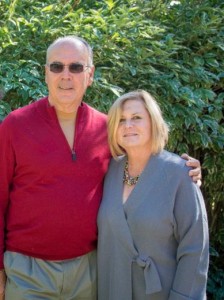The doctor is coming to town.
Puente celebrated a major victory on behalf of the entire South Coast community in September, when the San Mateo County Board of Supervisors formally approved funding for a new mobile health clinic that will exclusively serve the South Coast: Pescadero, La Honda and surrounding communities.
The initial funding for the clinic – a $1 million, two-year grant – comes from Measure A, a half-cent sales tax approved by San Mateo County voters in 2012.
A doctor, a nurse and a community outreach worker will staff the mobile health van, which should start making the rounds some time in late 2014 or early 2015.
“I want people to be able to enjoy some great quality time with their doctors,” said Supervisor Don Horsley, who worked closely with Puente Executive Director Kerry Lobel to make the medical clinic a reality.
Lobel has been lobbying county officials for a consistent, reliable health care solution ever since the county cut funding for a different mobile health van in 2009.
Both mobile medical vans follow a history of attempts to provide health care services to the South Coast, dating back to 2002.
Lobel found a powerful ally in Stanford Professor Dr. Gabriel Garcia, who will oversee the process of staffing of the medical clinic with a Stanford University physician. Under Dr. Garcia’s guidance, the van’s bilingual medical staff will treat patients on the South Coast with care and compassion. They will give special attention to the lifestyle factors that often play a part in causing chronic health conditions among a rural population. The approach will be holistic, engaged, and focused on prevention.
“This is very exciting. I think there will be lost of opportunities to do very creative things,” said Dr. Garcia.
Puente will help select a community outreach worker who will be specially trained to identify the short- and long-term health needs of local residents. He or she will be their liaison to the health care system, and help build confidence in the system. Many of the van’s new patients may never have had a primary care physician.
Perhaps most importantly, the van will make a point of stopping at the most populous labor housing camps. Puente’s recent census project and health care survey will be helpful in that respect, as well.
“We need to find out where people are and go there,” said Supervisor Horsley. “We have families who have may have children or spouses at home who can’t get into town.”





